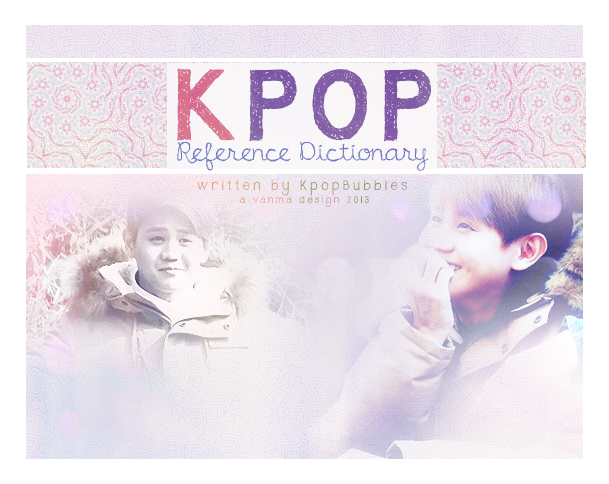Name Calling.
K-popReference Dictionary
One of the most basic things that are different in English and Korean--well, besides the language iteself--is the way names are but into context.
If you roleplay or read fanfics(Which you do, you're here on AFF aren't you?) you might notice '-ah's at the end of names and names conjoined with 'ie's. Some people learn from watching shows that their biases are on, some learn from looking at others doing it. Some actually know the use of it.
'Ah' is put at the end of a name, usually when you are older or the same age as the person. It's usually used when you call out to a person. The format, when proper, is usually '____-ah, andthensomethinghere' or vice versa. It is used when you are talking directly to the person. It's also seen in the form of '-yah' because some names don't work with 'ah'. 'Ah' is only used for names that end with consonant/consonant sound. Alternatvely, 'yah' is used for name that end in a vowel/vowel sound.
Ex: Yoseob-ah~. Junhyung-ah. Danee-yah. Myoungsoo-yah.
Then there's 'ie'. It's seems common that most people think that 'ie' is a form of nickname, while it's actually a form of using someones name. It's used with someone younger or the same age and, unlike 'ah', is used when you are talking about the person. Of course, it's not that it's 'incorrect' to use it when you call a person; the way it seems to have morphed into international Kpop culture. However, it's 'original' purpose, in Korea, is used to talk about someone. Basically, it's used in thid-point-of-view.
Ex: Today Yoseobie held my hand.
Also! Like 'ah', 'ie' cannot be put after vowels (although I'm sure that's obvious. I mean, Myungsooie makes no sense even in English).
Then there's all those titles.
Unnie, oppa, hyung, noona, halmoni, halabuhgi, umma, appa, sunbae, hoobae, seonsaengnim.
Korea's culture considers titles like these very important.
When you first meet a person, it's considered rude to say 'Annyeong' right away. Especially if the person is older than you. You have to say 'Annyeonghasaeyo' and bow, unless they are considerably younger than you.
At school, anyone you know to be in higher grades must be addressed as sunbae. Occasionally, if you have met them quite a bit of times and talked to them, you call the hyung/noona/oppa/unnie.
You never ever ever disrespect a person more elevated you and call them something that you would use with friends.
Respect towards elders is one of the most 'unspoken rules' drilled into Korea's culture.
Comments